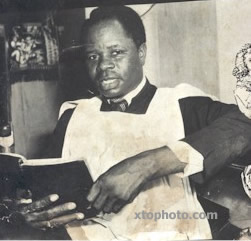
Prince Samuel Adetunji Adeosun, one of the early gospel musicians in Nigeria, passed on in the early hours of today, Tuesday, 28th June 2016. According to his children, he was aged 94.
Pa Samuel Adeosun, who came to the limelight through the Choir of Christ Apostolic Choir (CAC) Alagomeji, Yaba, composed many songs that have become church songs for evangelism.
Songs like Ko seni bi Jesu, Tete Baba ko gbo temi, Gbekele Onigbagbo are early church songs that minister to souls, especially amongst the Yoruba-speaking people worldwide.
Speaking with Elifeonline.net in 2006, Pa Adeosun traced his life history, looking at how songs came to him and what he has been able to do with the gifts from God. The interview is reproduced below.
Name: Prince Samuel Adetunji Adeosun
Birth: 1928?
Town: Erin Ijesha, Osun State.
Work Experience:
* Customs and Excise
* Savannah Bank, Lagos.
Favourites:
Food: Pounded Yam
Local Artiste: I.K. Dairo.
Foreign Artiste: Jim Reeves.
Instrument: I started with the flute
Colour: Blue.
Turn off: Careless talks.
TV Prog: Religious programmes
Bible Verse: Matthew 6: 36
Bible Book: Psalms.
Matrimony: 1954?
Church: Christ Apostolic Church.
Hobbies: Playing music on the piano.
Organisation: Church Choir only.
Contact Address: 15, I. K. Dairo Street, Lawanson, Suru Lere, Lagos, Nigeria.
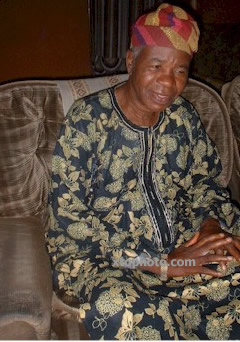
IN THE BEGINNING
“Music was a significant subject in schools during the colonial days. In secondary school at Efon Alaye, I started with the flute, which I played during the Empire Day celebration.
Because I knew the flute, a teacher, Mr Owolabi took an interest in me and gave me all the encouragement I needed.
“When I got to Lagos in 1940, I became a teacher at Christ Church Cathedral School, Ajele, Lagos. The school had a piano, which nobody could play.
“There was a music school owned by one Da-Silva and another at Apapa Road. I had to join both schools to learn how to play the piano.
Whenever we were on break, I would practise on the organ. When the headmaster, Mr Barber, a native of Abeokuta, saw me, he brought two other people to learn from me.”
DEBUT ALBUM
“I was so attached to the piano that my passion grew tremendously. The desire to compose began in me dramatically; often, I would find myself in dreams singing in the church.
When I woke up, I would put the songs together, and many people began to wonder how I composed such songs. The first song I wrote was Kristi mo f’ara mi fun o, and it became my first album.
“I attended CAC Ebute Elefun, Lagos, where I joined the choir. When we moved from Moloney to Ebute Meta, I joined C.A.C Alagomeji.
While in that church, my passion for music exposed a deficiency that nobody could compose songs. I discovered that almost all their songs were old. It allowed me to explode because I had composed so many songs waiting for use.
JOHN THE BAPTIST: MENTORING LESSONS FROM HIS LIFE AND DEATH – MENTORING MASTERCLASS DISCUSSION
“Whenever the choir was to celebrate their festival, I gave them new songs. Some of the songs I have recorded in my tape recorder would be played for the organist, who would then ask me to teach the choir.
This went on for a long time until it became extended to the outside world by recording songs on vinyl.
DECCA
“The idea to record on vinyl began through my friendship with the late juju maestro, I.K. Dairo. He stayed at my house whenever he came to Lagos from Ibadan to play at the Island Club or Yoruba Tennis Club.
One day, we both went to Decca, where we met a group, later known as Gospel Choral Singers, led by Evangelist S.O.Akinpelu. They were rehearsing church songs.
“When I enquired, I discovered that they were a gospel group based in Ibadan and were about to record on vinyl. This was a great challenge because I also sang, composed and had a choir.
“Right there, I knew I could do what this man did. I could put together the choir and also make an album. When I told I. K. Dairo that I could do what the man was doing, he took me to an officer in the company called Shanuolu.
He asked if I could immediately mobilise my choir to the studio, and I said yes.
“On getting to the choir practice the following Tuesday, I told them we would soon be recording at Decca. This brought joy to so many of them. We went on rehearsing our songs, including Kristi mo f’ara me fun o.
“Later, Decca brought their vehicle to convey us to the studio where we recorded, and my album was released in earnest. The album sold like hot cake, but we were paid a pittance, about four pence.
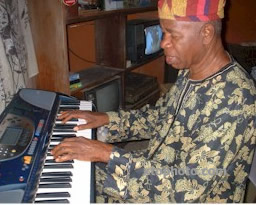
“However, right from the first day, I never bothered about royalty because I was a full staff of Savannah Bank, and I earned well.
Even though the church offered to pay me N150.00 monthly, which I refused, I told the church that whatever the choir made belonged to the church and the pastor; after all, I was well paid where I worked. Since then, we have released about 50 albums.
“I was the first person to release a gospel record in Nigeria, and I never collected a kobo from either Decca or the church.
The gospel songs I heard before the release of my record were the songs of one Baba Sowande, which were only played on the radio. I composed all the songs, and I own them, but the church and Decca provided the instruments.
RELATIONSHIP WITH I. K. DAIRO
“One day, I. K. Dairo brought me to Lawanson and pointed at a half-completed building which he said was for sale it and that he planned to buy it. He then asked me about my plans to build a house.
He worried me so much that I quickly got a loan from my bank and began to build a house in the same vicinity.
“However, I.K. could not complete his building, but as a friend, I introduced him to my bosses at the bank, who assisted him with a loan.
For that reason, our friendship became so great that when he was alive, he never stopped mentioning it that “Adeoshun had helped me to complete his building.
CHALLENGES
“So many challenges came because I was doing well. Such challenges range from jealousy to envy by the people around me. It got to a stage where I never knew the reason for these problems.
The major challenge came when I built my house. One man and his wife argued that I must have got the money to build the house from Decca using the name of the church choir.
These people had forgotten that I was well-paid at a bank. Hardly was there anything I wanted to do that I could not do as a banker. I bought my first car in 1965; I had a rewarding career in the bank.
” The problem became open in the church just when we released only three to four records. I later took all my documents to the church for them to know the truth about the building.
“Another problem was the invitation various churches and societies extended to me to compose songs for them on special occasions. Not many people loved my fame and recognition, but God has vindicated me today.
“Yoruba people have a saying that though the pepper is harsh, everybody desires it. The church authorities loved me so much, and they all cherished me. They wanted more of me and made me an adviser to the choir.
” My problem was not with the church but with some individuals. I had to withdraw somehow from the choir because I felt I had done enough.
I led the choir for three decades, during which we released many songs and participated in many live shows on television and radio stations such as NTA, LTV5 now (LTV 8), Federal Radio Corporation of Nigeria (FRCN) and Radio Lagos.
INSPIRATION
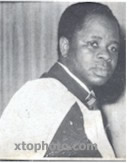 “My inspiration comes anytime: It could be while driving or sleeping. The revving of the engine could spur a new tune in me.
“My inspiration comes anytime: It could be while driving or sleeping. The revving of the engine could spur a new tune in me.
One day, I had to park my car while driving to write down a song that came to me. Some of my songs also came from my experiences; I composed some while in pain and some with tears.
“The song, Tete baba ko gbo temi, came out of a disappointment by a friend I had trusted so much.
The misunderstanding affected me so severely that I collapsed in bed when I got home, shedding tears. When I opened my mouth, the song leapt out.
” Later, I discovered the song was good and recorded it in my ever-present recorder. It is a regular experience for me to sing amid people, spirits and heavenly forces. These are the songs I wrote, developed and put on vinyl.
GOSPEL MUSIC TODAY
“I am sad about what we hear today as gospel music. Originality is lost, profound praise and worship are lost, and what obtains is the habit of picking old songs from old albums, distorting them in the name of innovation and releasing them as new songs.
“We can hardly hear good lyrics in these songs. What we hear includes rap, hip-hop, etc., and many of us can hardly relate.
Even in America, rap music has not gained much acceptance because it is street music, not from the mind of God. The young ones now bring the gospel to fit into the parameter of the world rather than conform the world to the spirit of God.”.
[youtube null=”https://www.youtube.com/watch?v=xZYGfN5ft08″ ][/youtube]


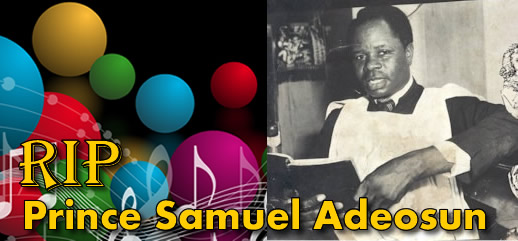
Leave a Reply